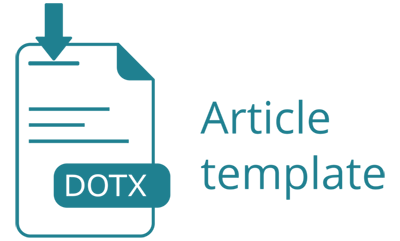Efektivitas Keluarga Utama Berakhlaqul Karimah Dalam Pemberdayaan Sumber Daya Manusia
DOI:
https://doi.org/10.15575/tamkin.v5i3.24188Keywords:
Effectiveness, empowerment, society has a morality.Abstract
References
Aliyudin. (2016). Dakwah Bi Al- Hal Melalui Pemberdayaan Ekonomi Masyarakat dalam Anida. Aktualisasi Nuansa Ilmu Dakwah, 15 (2), 187-206.
Arifah, Ummi., Anwar, Syaiful., Aziz, Ali. (2017). Pemberdayaan Keluarga sebagai Model Pemberdayaan Masyarakat dalam Tamkin: Jurnal Pengembangan Masyarakat Islam, 2 (1), 96-118.
Dinas Komunikasi Informatika Persandian dan Statistik Cianjur. (2017). Kampung Kuba Perkuat Kesejahteraan Cianjur, diakses 08 Agustus 2019, dari https://cianjurkab.go.id/kampung-kuba-perkuat-kesejahteraan-masyarakat-cianjur/.
Firmansyah, Hairi. (2012). Ketercapaian Indikator Keberdayaan Masyarakat dalam Program Pemberdayaan Fakir Miskin (P2FM) di Kota Banjarmasin. Jurnal Agribisnis Pedesaan, Vol. 2 No. 2 Juni 2012.
Koentjaraningrat. (1997). Metode-metode Penelitian Masyarakat. Jakarta: PT Gramedia Pustaka Utama.
Kuswana, Dadang. (2011). Metode penelitian sosial. Bandung: cv pustaka setia.
Machendrawaty, Nanin., Safei, Agus Ahmad. (2001). Pengembangan Masyarakat Islam. Bandung: PT Remaja Rosdakarya.
Makmur. (2015). Efektivitas Kebijakan Kelembagaan Pengawasan. Bandung: PT Refika Aditama.
Nasution. (2011). Metode Research (Penelitian Ilmiah). Jakarta: PT Bumi Aksara.
Ndraha, Taziliduhu. (1999). Pengantar Teori Pengembangan Sumber Daya Manusia. Jakarta: PT Rineka Cipta.
Pahlar, P.D (2014). Pengaruh Program Pondok Prestatif Indonesia Terhadap Peningkatan Sumber Daya Manusiapara Santri. Jurusan Pengembangan Masyarakat Islam Fakultas Dakwah dan Komunikasi Universitas Islam Negeri Sunan Gunung Djati Bandung
Ridwanullah, Irwan. A, Herdiana, D. (2018). Optimalisasi Pemberdayaan Masyarakat Berbasis Masjid dalam Ilmu Dakwah: Academic Journal for Homiletic Studies, 12 (1), 82-98.
Soehartono, Irawan. (2008). Metode Penelitian Sosial. Bandung: PT Remaja Rosdakarya.
Streers, Richard M. (1977). Organizational Effectiveness, Efektivitas Organisasi. Jamin, Magdalena. (1980). Jakarta: Erlangga.
Sururie, Ramdhani Wahyu, Aziz, Rohmanur, Fridayanti, Mardiyansyah, Yadi, Uriawan, Wisnu, Zulqiyah. (2016). Paradigma dan Siklus KKN Sisdamas. Bandung: Lembaga Penelitian dan Pengabdian kepada Masyarakat (LP2M).
Theresia, A., Andini, K. S., Nugraha, P. G. P., & Mardikanto, T. (2015). Pembangunan berbasis masyarakat. Bandung: Alfabeta.
Downloads
Published
How to Cite
Issue
Section
Citation Check
License
Authors who publish articles in Tamkin: Jurnal Pengembangan Masyarakat Islam agree to the following terms:
- Authors retain copyright of the article and grant the journal right of first publication with the work simultaneously licensed under a CC-BY-SA or The Creative Commons Attribution–ShareAlike License.
- Authors are able to enter into separate, additional contractual arrangements for the non-exclusive distribution of the journal's published version of the work (e.g., post it to an institutional repository or publish it in a book), with an acknowledgment of its initial publication in this journal.
- Authors are permitted and encouraged to post their work online (e.g., in institutional repositories or on their website) prior to and during the submission process, as it can lead to productive exchanges, as well as earlier and greater citation of published work (See The Effect of Open Access).





